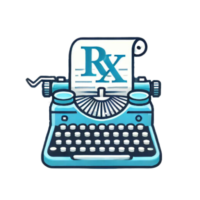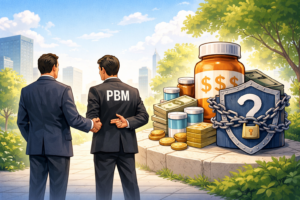Managed care pharmacy has emerged as a critical field, focusing on optimizing medication therapy outcomes while controlling costs within healthcare systems. The demand for managed care pharmacists is growing, presenting exciting opportunities for pharmacy students eager to make a significant impact on patient care and the healthcare industry at large.
Introduction
Growing Field: Demand for Managed Care Pharmacists
Managed care pharmacists play a pivotal role in healthcare organizations, insurance companies, pharmacy benefit managers (PBMs), and other entities that manage medication use. Their expertise is essential in formulary management, medication therapy management, and developing strategies to improve patient outcomes while reducing costs. According to the Academy of Managed Care Pharmacy (AMCP), there is an increasing need for professionals who can navigate the complexities of medication management in various healthcare settings.
Goal: Guiding Students Towards This Specialty
For pharmacy students considering their career paths, understanding the educational and professional steps necessary to enter managed care is crucial. This guide aims to illuminate the pathways available, highlighting academic preparation, professional development, mentorship opportunities, advanced training, and networking strategies that can set students on the path to a rewarding career in managed care pharmacy. You can learn about role expectations in my managed care crash course article.
I. Academic Preparation
Relevant Coursework: Pharmacoeconomics, Health Policy, and Outcomes Research
A solid academic foundation is essential for success in managed care pharmacy. Students should focus on coursework that provides:
- Pharmacoeconomics: Understanding the economic aspects of drug therapy, including cost-benefit analyses and healthcare resource allocation.
- Health Policy: Gaining insights into the regulations and policies that shape healthcare delivery and reimbursement models.
- Outcomes Research: Learning methods to evaluate the effectiveness of healthcare interventions on patient outcomes.
These subjects equip students with the analytical skills necessary to assess medication therapies critically and contribute to policy development.
Experiential Learning: Rotations in Managed Care Settings
Experiential education is a cornerstone of pharmacy training. Students should seek out rotations that offer exposure to managed care environments, such as:
- Health Insurance Companies: Working on formulary management and prior authorization processes.
- PBMs: Understanding medication utilization management and drug benefit design.
- Government Agencies: Participating in programs like Medicaid or Medicare to learn about public health initiatives.
These experiences provide practical insights into the daily responsibilities of managed care pharmacists and enhance understanding of the healthcare system’s inner workings.
II. Professional Development
Student Organizations: Involvement in Groups like AMCP
Active participation in professional organizations enriches education and fosters essential connections. The AMCP Student Pharmacist chapters offer:
- Educational Resources: Access to webinars, journals, and literature on managed care topics.
- Leadership Opportunities: Roles within the organization that develop management and organizational skills.
- Networking Events: Interactions with professionals and peers passionate about managed care.
Engagement in these groups demonstrates commitment to the field and can distinguish students in competitive environments.
Conferences and Workshops: Attending Industry Events
Conferences provide unparalleled opportunities to learn from experts, discover emerging trends, and network. Notable events include:
- AMCP Annual Meeting: Features sessions on current issues in managed care pharmacy, poster presentations, and networking receptions.
- Pharmacy School Career Fairs: Offer chances to meet potential employers and learn about residency and fellowship programs.
- Workshops and Seminars: Focused training on specific skills like pharmacoeconomics modeling or health informatics.
Attending these events keeps students informed and demonstrates proactive engagement with the profession.
III. Mentorship Opportunities
Finding a Mentor: Connecting with Professionals in the Field
Mentorship is invaluable for personal and professional growth. Steps to find a mentor include:
- University Resources: Leveraging faculty connections to identify mentors with managed care experience.
- Professional Organizations: Utilizing mentorship programs offered by groups like AMCP or state pharmacy associations.
- Networking Platforms: Reaching out through LinkedIn or attending networking events to establish relationships.
A mentor provides guidance, introduces opportunities, and offers insights that textbooks cannot.
Career Guidance: Receiving Personalized Advice
Mentors can assist with:
- Resume and CV Review: Tailoring documents to highlight relevant experiences.
- Interview Preparation: Practicing responses and building confidence for residency or job interviews.
- Goal Setting: Developing a strategic plan for career advancement, including identifying strengths and areas for improvement.
Personalized advice helps students navigate the complexities of career planning and makes the journey less daunting.
IV. Certification and Advanced Training
Residencies and Fellowships: Specialized Postgraduate Programs
Pursuing postgraduate training enhances expertise and competitiveness in the job market. Options include:
- Managed Care Residency Programs: Accredited programs that provide intensive training in formulary management, medication therapy management, and healthcare policy.
- Fellowships: Opportunities focused on research, policy development, or industry roles, often in collaboration with pharmaceutical companies or academic institutions.
Resources like the Pharmacy Residency Programs List can help identify programs that align with career goals.
Board Certification: Earning Credentials like BCPS
Professional certifications demonstrate a high level of competency and commitment. The Board Certified Pharmacotherapy Specialist (BCPS) credential, for example, signifies expertise in optimizing medication use and improving patient outcomes.
- Eligibility: Requires a PharmD degree, an active pharmacy license, and practice experience or completion of a residency.
- Preparation: Involves rigorous study and understanding of pharmacotherapy across various patient populations.
- Benefits: Enhances credibility and may open doors to advanced positions and higher earning potential.
V. Building a Professional Network
Networking Skills: Effective Communication and Relationship Building
Developing strong networking skills is essential for career advancement. Strategies include:
- Active Listening: Showing genuine interest in others’ experiences and perspectives.
- Elevator Pitch: Crafting a concise introduction that highlights your interests and goals.
- Follow-Up: Maintaining connections through periodic communication and expressing gratitude for assistance.
Building relationships can lead to job opportunities, collaborations, and lifelong professional friendships.
Online Presence: Utilizing Platforms like LinkedIn
In the digital age, a robust online presence is crucial. Tips for optimizing online profiles:
- Professional Profile Photo: Presenting a polished and approachable image.
- Detailed Experience: Highlighting relevant coursework, projects, and experiences in managed care.
- Engagement: Sharing articles, commenting on posts, and participating in discussions related to managed care pharmacy.
An active online presence increases visibility and can attract recruiters or collaborators.
Conclusion
Investing in the Future: Commitment to Professional Growth
Embarking on a career in managed care pharmacy requires dedication, continuous learning, and proactive engagement with the field. By investing time and effort into academic excellence, professional development, mentorship, advanced training, and networking, students position themselves for success in this dynamic specialty.
Encouragement: Motivating Students to Pursue Managed Care Careers
The impact of managed care pharmacists extends beyond individual patient interactions; it influences healthcare policies, access to medications, and the overall efficiency of healthcare delivery. Students passionate about making a systemic difference are encouraged to explore this rewarding path.
Embracing the journey towards a managed care career not only fulfills personal and professional aspirations but also contributes significantly to advancing the pharmacy profession and improving healthcare outcomes for populations at large.







